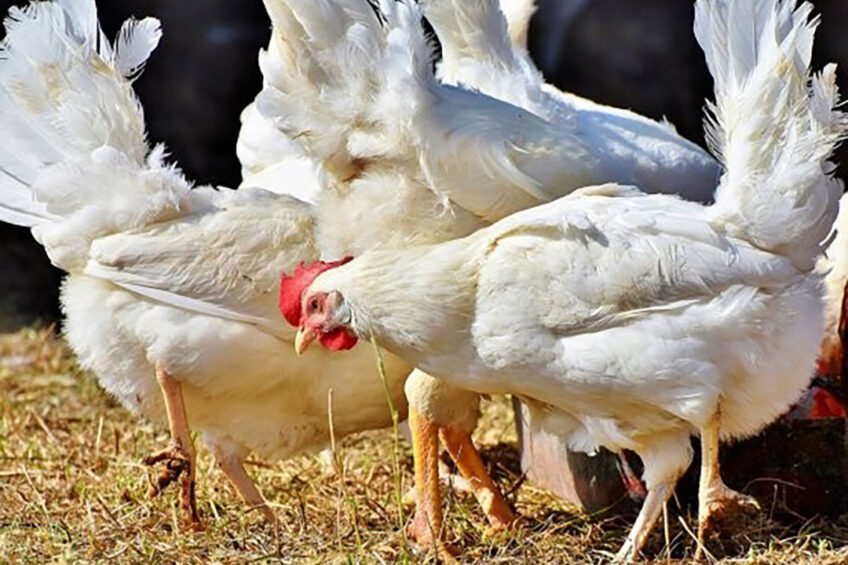Saudi Arabia’s changing poultry landscape

The Saudi Food and Drug Authority (SFDA) has recently implemented several new measures that will significantly affect the Saudi import poultry market. Meanwhile, local poultry production is being encouraged.
Aimed at reducing the Kingdom’s dependence on oil and to diversify its economy, and as part of its Saudi Vision 2030 goal, the Saudi Ministry of Environment Water and Agriculture (MEWA) is encouraging local producers to drastically increase production. The country produced 900,000 mt of chicken meat in 2020, accounting for 60% of domestic consumption with estimates near 1.55 mmt a year.
MEWA expects local production to account for 80% by 2025 and 100% by 2030. To achieve this, the ministry is offering local chicken meat producers various incentives including up to US$ 187 million annually as a direct production-based subsidy. Almarai, the largest Saudi dairy farm and the third largest chicken meat producer, recently announced a massive poultry expansion plan at a cost of US$ 1.8 billion, which will double its poultry production over the next 5 years.
Under Vision 2030, the Saudi government encourages foreign companies to invest in the Saudi market, especially poultry farms. In return, Saudi Arabia offers 100% ownership to “local” producers and access to the direct production-based subsidy that is also offered to local poultry farmers.
Poultry trade disruptions
In 2020, Saudi Arabia imported a total of 652,283 mt of chicken meat and products of which Brazil supplied 72% (467,522 mt). In May, the SFDA suspended 11 Brazilian poultry plants from exporting to Saudi Arabia. This accounts for 60% of Brazil’s poultry exports to the Saudi market. The 3 Brazilian poultry companies affected by the import ban – JBS, Vibra Group (of which Tyson Foods owns 40%) and Agroaraca Industria De Alimentos Ltda (Nicolini) – lost their most important market in the Middle East. According to a USDA report, SFDA has not provided key information on the ban, such as the reasons for the suspension or how long the suspension will last.
New Arab poultry association formed
A new association, the Union of Arab Poultry Producers, has been formed and comprises representatives from the various poultry producer associations in Saudi Arabia, Kuwait, Oman, Jordan, Egypt, Sudan, Tunisia, Bahrain Algeria, Morocco and the UAE. Find out more…
Meanwhile, in early June 2021, SFDA temporarily suspended poultry imports from Ukraine’s largest export facility, PrJSC “Myronivska Pticefabrika” (MHP). In 2020, Ukraine exported 84,221 mt of chicken meat to Saudi Arabia, and MHP was the dominant supplier. In June, SFDA also temporarily banned imports of poultry meat and eggs from 3 French provinces due to the outbreak of the HPAI. In 2020, France exported about 73,000 mt of chicken meat to Saudi Arabia.
Investment from Brazil
Meanwhile, Brazil’s largest chicken meat processor, BRF SA, recently invested in 2 poultry meat processing facilities in Saudi Arabia. In October 2019, the company announced an agreement with the Ministry of Investment of Saudi Arabia to establish its fully-owned poultry meat processing plant at a total cost of US$ 120 million. The firm’s Saudi plant is expected to produce around 50,000 mt of poultry meat annually. On 7 May 2020, BRF SA purchased Vita Food Company (a Dammam, Saudi Arabia-based meat processing company) for nearly US$ 8 million. BRF SA also plans to invest US$ 7.2 million in expanding the existing Vita plant’s processing capacity by over 4-fold. Currently, 5 Brazilian companies with a total of 9 facilities are eligible to export poultry meat and products to Saudi Arabia, and BRF SA is the dominant supplier with 4 of those facilities. On 2 October 2020, SFDA temporarily suspended 2 of the company’s facilities from exporting to the Kingdom, and the suspension is still effective.
This information has been extracted from a USDA GAINS report.












